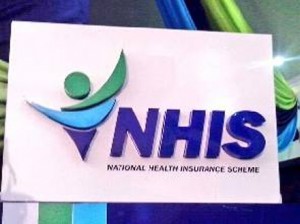Under-funding undermining quality healthcare provision in Central Region
 Healthcare Service Providers in the Central Region have expressed their concern over how the quality of service is being compromised by the under-funding of health services.
Healthcare Service Providers in the Central Region have expressed their concern over how the quality of service is being compromised by the under-funding of health services.
At an annual review conference at the University of Cape Coast, the health providers said because of the huge debts to creditors, the suppliers of health commodities were refusing to supply essential medicines and medical supplies to the Regional Medical Stores and health facilities.
Dr. Samuel Kwashie, the Central Regional Director of the Ghana Health Service (GHS), in a speech read on his behalf by his deputy, Mr. Lucio G. Dery, attributed the situation to National Health Insurance Scheme (NHIS) claims in arrears of about eight months.
He said the working capital of the health facilities had also been locked up because of the financial situation.
He therefore, urged stakeholders to play their roles to ensure that all forms of direct and indirect financial barriers preventing the vulnerable from accessing affordable and quality healthcare were removed as a matter of urgency.
The conference was organised by the Central Regional Directorate of the National Health Insurance Authority (NHIA) to assess the performance of the 13 branch schemes in the Region for 2015.
Dr. Kwashie said under the circumstances, it was the vulnerable who suffered the most, explaining that “the National Health Insurance Fund is a national healthcare and developmental resource and the stakeholders must strive to protect it”.
He said that under the present circumstance, the NHIA fund was ailing, saying, all stakeholders were partly to blame for the problem; having contributed in one way or the other.
Dr. Kwashie said it was clear that the NHIS Fund had been abused: from the NHIA card-holder, through the healthcare provider to the fund manager and the purchaser.
The Regional Director, therefore, advised the more than 50 NHIA workers who participated in the conference, that as they were reviewing their past performance, each stakeholder must subject him or herself to introspection, and eschew all forms of acts, omissions and commissions, which were not in the national interest.
Dr. Kwashie said for the fund to be effectively sustained to be able to perform its functions well, all stakeholders must put a genuine hand to the wheel to ensure that the NHIS fund was really sustained and protected to benefit all who those needed it.
This, the Regional Director called for improved stakeholder engagements in addressing effectively the factors negating the purpose and vision of the NHIA fund.
Dr. Kwashie called on the NHIA to improve upon the timeliness of the releases of the fund and claims payment to service providers and ensure timely credentialing of health facilities, especially CHPS zones, and other lower level facilitates, in particular.
He emphasised the need for a joint action and a more open clinical auditing and action between the NHIA and providers.
The Government, Dr. Kwashie said, must effectively engage all stakeholders on the practical expansion and efficient accountability of the Fund to cope with the reality of the time.
The theme for the conference was, “Reaching Out To The Vulnerable – The Role Of The Stakeholder”.
Source: GNA
